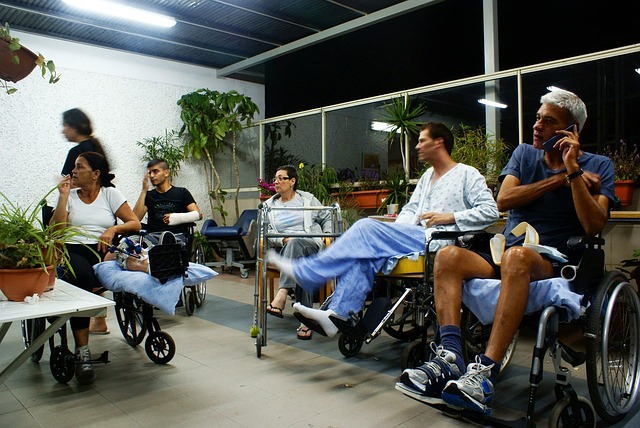Recovery looks different for everyone, which is exactly why the idea of “one-size-fits-all” rehab is starting to fade. The modern approach to addiction treatment recognizes that no two people arrive with the same story, the same triggers, or the same needs. From evidence-based medical detox to animal-assisted care, the focus has shifted toward matching people with the kind of support that actually fits their lives—not forcing them into something generic.
The Rise Of Specialized Treatment Programs
Rehab centers are no longer confined to the image of sterile hospital rooms and rigid daily schedules. Many programs now tailor care to specific groups, whether that’s professionals juggling demanding careers, veterans coping with trauma, or parents balancing recovery with family life. What’s driving this change is simple: results. People recover more successfully when treatment aligns with who they are. That means integrating therapy methods that resonate personally—like art therapy, mindfulness-based relapse prevention, or group work built around shared experiences.
Rehabs That Include The Whole Family
Addiction rarely affects just one person. Family-centered programs have grown rapidly in the past few years, designed to heal relationships and build communication skills. In these settings, spouses, parents, or siblings participate directly in therapy sessions. It helps everyone understand the nature of addiction and learn how to support recovery without enabling destructive patterns. This kind of family inclusion can be especially powerful when combined with family education on boundaries and emotional resilience.
Some centers even go a step further by offering pet-friendly rehabs, allowing people to bring their emotional support animals with them. Pets offer grounding, unconditional affection, and a steady sense of comfort during a time that’s usually filled with anxiety and uncertainty. For many, having that familiar presence helps bridge the gap between isolation and connection, which can be a defining factor in early sobriety.
Faith-Based And Holistic Healing Options
For those whose belief systems are an anchor, faith-based programs provide a foundation for recovery that blends spiritual guidance with clinical support. These centers often include prayer, meditation, or community worship in the treatment structure, recognizing how faith can be a stabilizing and motivating force.
Holistic rehabs take another route, focusing on the mind-body connection. Yoga, nutritional therapy, acupuncture, and even outdoor adventure therapy are integrated to help restore balance. The goal isn’t just to stop substance use—it’s to rebuild health and identity from the inside out. This approach has become increasingly popular among those who want something beyond traditional talk therapy, offering physical outlets that make emotional recovery feel more tangible.
Rehab Programs That Embrace Everyday Life
One of the biggest shifts in treatment today is the move toward normalcy—making rehab feel less like stepping out of life and more like stepping into a better version of it. Many centers now include real-world skill building alongside therapy, such as budgeting, cooking, or career development. It’s not about keeping people busy; it’s about teaching them how to live again. These programs help participants re-learn balance, confidence, and purpose so they can walk out ready to function in everyday life, not just survive in recovery.
For those balancing jobs, school, or parenting, flexible programs have become a game changer. Partial hospitalization and intensive outpatient models offer structured therapy during the day, but let people return home at night. This setup preserves a sense of independence while still providing the safety net of daily support. It’s a middle ground that proves recovery doesn’t have to mean hitting pause on everything else—it can coexist with real responsibilities and a future worth planning for.
Choosing The Right Setting For Success
Some people thrive in residential programs where they can fully immerse themselves in recovery without daily life distractions. Others prefer outpatient setups that allow them to stay connected to work or family while receiving care. The key is not to measure one as better than the other, but to find what best supports long-term commitment.
A growing number of recovery centers also emphasize environments that promote calm and focus—like coastal rehabs where the ocean becomes part of therapy, or mountain retreats that use the outdoors as a natural detox from chaos. What matters is how the setting complements the process, helping people reconnect with themselves in ways that feel sustainable.
A New Chapter In Long-Term Recovery
Finishing treatment isn’t the end of the story. It’s where maintenance and daily reinforcement come in. Transitional housing and sober living communities have become a vital bridge between structured rehab and total independence. For example, people often choose a home for sober living in Columbus Indiana, La Jolla California or somewhere else away from daily triggers to establish fresh routines in a supportive environment. Distance can create perspective, and those new surroundings help break ties with patterns that once fueled addiction.
The idea is to create stability—not isolation. Sober living homes offer community, accountability, and continued access to therapy or job training. The atmosphere feels less like a clinic and more like a shared commitment to staying on track, with residents rebuilding their confidence one day at a time.
Moving Forward With Confidence
Addiction recovery has evolved into something far more human, personalized, and hopeful than the old models ever were. Treatment today is not about erasing the past but equipping people to write a better future with the right tools, environment, and mindset. Whether it’s through specialized therapy, family participation, spiritual grounding, or a supportive sober living home, recovery is now built to meet people where they are—and help them rediscover who they can become.
When programs focus on authenticity and compassion instead of perfection, they stop being places of restriction and start becoming spaces for renewal. That’s the kind of progress worth celebrating.

